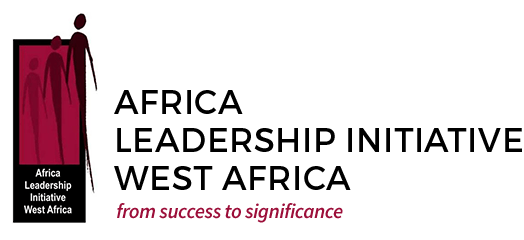Introduction:
In the spirit of International Women’s Day, observed last month under the theme “Inspiring Inclusion: Investing in Women to Achieve Progress,” we are delighted to share a part of our International Women’s Month Series. Today, we bring you an illuminating interview with Mrs. Amina Oyagbola, the visionary founder of WISCAR (Women in Successful Careers) and a passionate advocate for women’s empowerment and social change.
A Voice for Change:
Throughout the interview, Amina Oyagbola shares profound insights on the pivotal role of economic empowerment in advancing gender equality. She highlights its transformative impact on financial independence, poverty alleviation, and the overall well-being of women. Amina also explores successful empowerment models and addresses the persistent challenges of limited financial access and gender-based discrimination, offering invaluable perspectives on overcoming these obstacles.
Part of a Larger Conversation:
In a time where inclusivity and diversity are paramount, conversations like these serve as catalysts for change. They challenge societal norms, promote understanding, and contribute to the creation of a more equitable and inclusive society for all.
Please read the full interview below:
In what ways does economic empowerment contribute to gender equality and overall societal progress?
Economic empowerment plays a crucial role in advancing gender equality and overall societal progress in several ways:
- Increased Financial Independence – When women have access to economic resources and opportunities, they become financially independent, reducing their reliance on others for financial support. This independence enhances their decision making power within households and communities and enables them to be more productive..
- Poverty Alleviation – Economic empowerment enables women to generate income, lift themselves and their families out of poverty, and contribute to socio economic growth and development. This is particularly impactful in developing countries where women often bear the brunt of poverty.
- Improved Health and Education Outcomes – With increased income, women can invest in better healthcare and education for themselves and their families, leading to improved health outcomes, higher educational attainment, and overall well-being.
- Enhanced Participation in Decision Making – Economic empowerment often leads to greater participation of women in decision-making processes in the household and in society. This can lead to more inclusive and representative governance structures.
- Breaking Gender Stereotypes – By showcasing women’s capabilities and contributions in economic spheres traditionally dominated by men, economic empowerment challenges gender stereotypes and promotes a more egalitarian society.
- Can you highlight successful models or programs that have empowered women economically and fostered financial inclusion?
Certainly, I will mention 5 models we use at WISCAR – Structured Mentorship Programs, Leadership Development, Networking, Entrepreneurship Support, Advocacy and Awareness Campaigns
The WIN with WISCAR Mentoring Program is a successful and transformative model that empowers women economically and fosters financial inclusion. Through its mentorship programs, networking, entrepreneurship support, and advocacy initiatives, WISCAR has made significant strides in advancing gender equality and economic empowerment for women. These programs provide women with access to guidance, skills development, networking opportunities, and resources needed to advance and succeed in their careers and entrepreneurial pursuit.
At the recent Unstereotype Alliance Global Summit in New York, held at the UN HQ, WISCAR had the opportunity to showcase its model and highlight its impact on bridging the gender gap. By presenting the WISCAR Model, which focuses on mentorship, leadership development, entrepreneurship support, and advocacy for gender equality, WISCAR demonstrated its commitment to advancing the principles of the Women’s Empowerment Principles (WEPs) and promoting diversity, equity, and inclusion (DEI) in the workplace.
- What challenges do women face in accessing economic opportunities, and how can these challenges be addressed?
Women often face multiple intersecting barriers to economic empowerment, including limited access to financial services such as credit and savings, driven by factors like discriminatory practices, lack of collateral, and limited financial literacy. The persistent gender wage gap exacerbates economic inequality, with women frequently earning less than men for comparable work, impeding their ability to accumulate wealth and invest in their futures. Additionally, women disproportionately shoulder the burden of unpaid care work, such as childcare and household chores, constraining their participation in the formal economy and hindering career advancement. Gender-based discrimination further compounds these challenges, impeding women’s access to employment, entrepreneurship opportunities, leadership positions, and even procurement in the workspace, perpetuating gender disparities in economic outcomes. These systemic challenges underscore the urgent need for comprehensive strategies to dismantle barriers and promote gender equality in economic spheres.
- Addressing Challenges
Addressing the challenges women face in accessing economic opportunities requires a multifaceted approach that includes policy interventions, private sector initiatives, and organizational commitments. Gender-inclusive budgeting and gender responsive procurement play crucial roles. By integrating gender perspectives into budget allocations and procurement processes, governments and organizations can ensure that resources are allocated equitably and effectively address the needs and priorities of women.
Additionally, gender-friendly policies such as affordable childcare services, parental leave provisions, and flexible work arrangements are essential for enabling women to balance their caregiving responsibilities with economic pursuits. These policies not only enhance women’s participation in the labor force but also contribute to overall economic productivity and societal well-being. WISCAR’s role as the private sector liaison on gender-responsive affirmative procurement is pivotal in driving corporate engagement and commitment to gender equality initiatives. Organizations can further demonstrate their commitment to gender equality by iigning the Women’s Empowerment Principles (WEPs), which provide a framework for advancing gender equality in the workplace, marketplace, and community.
Investing in education and skills development programs specifically tailored to women’s needs can enhance their employability and enable them to access higher paying jobs and entrepreneurship opportunities. Addressing systemic barriers such as the gender wage gap and discriminatory practices through policy reforms and enforcement mechanisms is essential for creating a level playing field for women in economic spheres. By addressing these challenges holistically and fostering a supportive ecosystem that promotes gender equality, organizations and governments can unlock the full economic potential of women and contribute to sustainable and inclusive economic growth.
